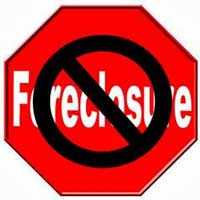December 7, 2011
LOS ANGELES— Attorney General Kamala D. Harris today announced the arrests of two Southern California men who, under the guise of an attorney-backed loan modification company, collected more than $6 million from homeowners nationwide for services that were never performed.
Christopher Fox, 37, of Laguna Niguel and Curtis Melone (AKA Curtis Kubat), 37, of Huntington Beach were arrested Tuesday on 37 felony counts, including conspiracy, grand theft and unlawful collection of advance fees. They are being held at the Orange County Jail on $500,000 bail and will be arraigned today in Orange County Superior Court.
Fox and Melone – along with King Harris III, 42, of St. Louis, Missouri – collected more than $6 million in up-front fees through Orange County- based Green Credit Solutions. The Attorney General’s office will seek extradition of Harris, who currently faces federal mail and wire fraud charges in Missouri.
“Homeowners continue to struggle throughout California and across the country to hang onto their homes, and this prosecution is another warning to predators who would seek to profit from their distress: this kind of criminal conduct will meet with swift and certain consequences,” Attorney General Harris said. “Homeowners should never pay up-front fees to reduce their loans. Californians who face mortgage difficulties should instead contact a non-profit housing counselor, either through www.HUD.gov or a local non-profit housing clinic, to learn about the mortgage process and their rights as homeowners.”
In June 2009, the Attorney General’s office launched an investigation of Orange County- based Green Credit Solutions – later renamed Guardian Credit Services and Get My Credit Grade – in response to numerous consumer complaints filed with the office, as well as with the Better Business Bureau, the California Department of Real Estate and the State Bar of California.
Through witness interviews, analysis of the company’s marketing materials, and its business and financial records, DOJ investigators uncovered a scheme in which thousands of victims paid $3,500 for what they believed were attorney-backed loan modification services to reduce their interest rates, monthly payments or principal balance.
From November 2008 to October 2009, Fox, Melone and Harris collected more than $6 million from thousands of homeowners across California and nationwide. Victims were told their funds would be held in a so-called “attorney escrow account” until services were completed. In fact, those fees were often deposited into the account of a disbarred attorney and then promptly transferred to GCS.
Likewise, the company fraudulently claimed that loan modification services would be performed by attorneys; Harris is a disbarred Tennessee attorney and marketing materials referred to his alleged partners at the defunct law firm of “Smith Harris PLLC.”
In May 2011, Attorney General Harris formed a Mortgage Fraud Strike Force to investigate and prosecute mortgage fraud. In August, the Strike Force filed its first suit against a law firm that took millions from desperate homeowners: Click to view
The complaint is attached to the online version of this release at http://oag.ca.gov/
Thinking of buying or selling?
For all your real estate needs
Email or call:
John J. O’Dell Realtor® GRI
(530) 263-1091
Email jodell@nevadacounty.com






